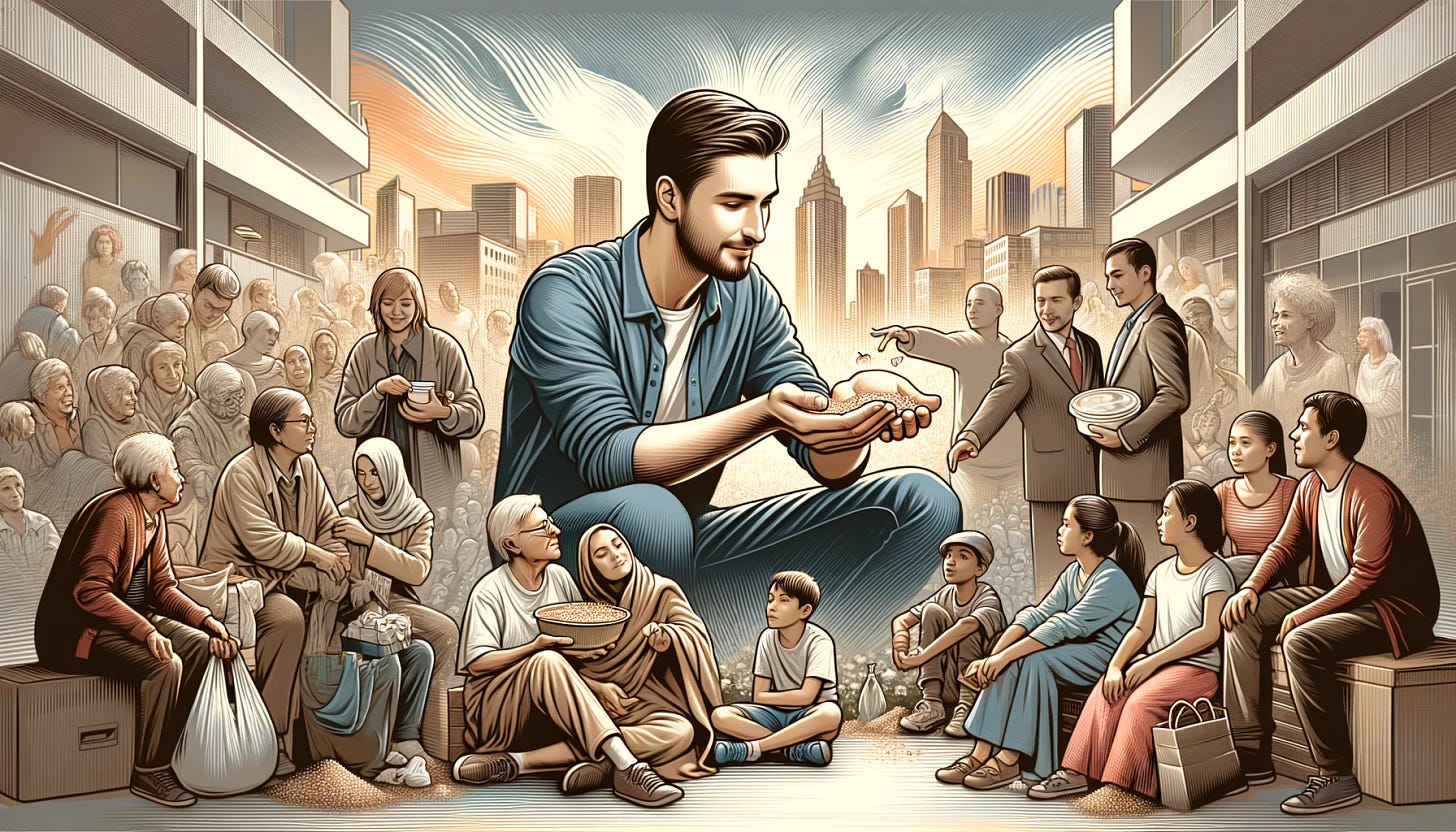The Exercise of Kindly Aid and Charity
We are going to dive into a principle that's close to our hearts: "the exercise of kindly aid and charity."
This isn't just about what we do; it's about who we are. In unpacking this principle, we learn that both Kindly Aid and Charity are not just concpts but are way of life that deeply connects us to our community and to each other.
📆 Make Daily Progress in Masonic Knowledge Across other formats:
YouTube: https://www.youtube.com/@DailyMasonicProgress
Podcast: Apple Podcasts | Spotify | Amazon Music | iHeartRadio
In today's world, we often find ourselves caught in a web of individualism. It's easy to feel isolated, to feel like we're navigating this journey alone. But here lies our opportunity for transformation—a chance to foster unity and mutual support, to truly embody the Masonic principles of aid and charity. If we overlook this, we risk further isolation, diminishing our sense of community and missing out on contributing to the collective well-being of society.
So, why is "the exercise of kindly aid and charity" particularly significant? Because it addresses the very challenges of isolation and societal fragmentation we face today. It urges us to step beyond ourselves, to actively engage in acts of kindness and support. This principle isn't just relevant; it's essential, guiding us from individualism towards a community-oriented perspective. It's about moral and spiritual growth, about contributing to the welfare of others and, in turn, enriching our own lives.
But how do we bring this principle to life in our modern world? We all face the challenges of feeling disconnected, of struggling with the impersonal nature of contemporary society. Here, the principles of aid and charity shine a light on solutions—promoting a culture of support, generosity, and communal responsibility.
What motivates us to change? It's the recognition of the impact we can have when we come together, the realization that now is the time to rekindle a sense of community and compassion in an increasingly fragmented world. This urgency underscores the importance of embracing these principles, offering us a path towards a more connected, more compassionate existence.
Delving deeper, "the exercise of kindly aid and charity" goes beyond mere philanthropy. It's an active engagement in the well-being of others, rooted in Masonic traditions of communal support and the enlightenment ideals of universal brotherhood. This principle raises questions about how we can integrate such wisdom into our modern lives, balancing personal interests with the collective good.
A compelling example comes from the story of building King Solomon's Temple—a symbol of unity, cooperation, and the importance of each individual's contribution. This story illustrates how the virtues of aid and charity are integral to Freemasonry, both historically and philosophically. It teaches us about collaboration, shared goals, and the significance of each person's role within a community.
This story also unveils the principle's complexities, showing how Masonic teachings have concrete implications for collective endeavors and personal growth. The challenges of coordinating diverse contributions and ensuring alignment with overarching goals were met through leadership, shared values, and mutual respect.
In our modern lives, applying this principle involves recognizing everyday opportunities to support and uplift others. Practical steps include identifying needs within our community, leveraging our skills for the common good, and fostering environments where mutual support is encouraged. This application bridges ancient wisdom with contemporary challenges, showing that the values of brotherhood, generosity, and collective well-being are as relevant today as ever.
Yet, we often face challenges, like societal norms that prioritize individual success over community welfare. Adapting Masonic lessons to our personal contexts requires a mindset shift and finding supportive communities. Success stories of community projects demonstrate the power of collective effort, guided by principles of aid and charity.
A common misconception is seeing charity only as financial donations. True charitable action involves more than superficial gestures; it requires genuine commitment and a broad understanding of charity that encompasses various forms of aid.
Not applying or misapplying these lessons can lead to missed growth opportunities and a weaker sense of community. Overcoming these challenges requires a steadfast commitment to Masonic values and a willingness to engage in self-reflection and community dialogue.
For successful application, a change in perspective or behavior is needed, moving from individual achievement to valuing communal well-being. Actionable steps include engaging in community service and practicing everyday acts of kindness, advocating for values of brotherhood, and mutual support.
Internal reflection is crucial for aligning with Masonic principles, involving consideration of our actions' impacts on others and the community. Essential tools for effective application include knowledge of Masonic teachings, openness to learning, and a willingness to adapt behaviors for the greater good. Successfully integrating these principles promises a richer, more connected life, marked by meaningful contributions to the well-being of others and the enhancement of the social fabric.
Together, we embark on this journey, guided by the timeless principles of aid and charity, towards a more compassionate, more unified world. Let's embrace this transformative path, enriching our lives and the lives of those around us.




